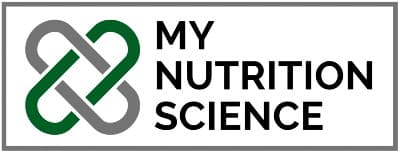Extended Summary
Dietary fat is not benign; it provides your body with energy. This simple fact is important when considering the main factor controlling your body weight and body fat levels is energy balance: whether the amount of energy you consume each day is more, less, or the same, as the amount of energy that you expend (”burn”). In the long-term, a consistent excess of energy (a ‘calorie surplus’) is typically needed to gain body fat. In this energy state, the body will begin to store (either as glycogen, lean mass, or body fat) a small amount of the nutrients (protein, fat, or carbohydrate) that have not been used to meet the bodies energy demand. If you are not in a calorie surplus, the weight of dietary fat itself will be lost mostly in the carbon dioxide that you breathe out.
If you consume mounds of butter every day then dietary fat is sure to pose an issue; however, independent of energy balance, dietary fat will probably not change your body fat levels more than other nutrients such as dietary carbohydrate. If you consume 3000kcal per day, for example, the proportion of this energy sourced from either fat or carbohydrate seems to be a non-issue. While many claims regarding uniquely fattening properties of both dietary fat and carbohydrates persist, no macronutrient has been convincingly shown to influence body fat independent of daily energy intake. A few comprehensive analyses of the scientific literature strongly support this position:
- The first is a meta-analysis of 11 randomised controlled trials (totalling 739 participants), where high fat low carbohydrate diets had a very slight but clinically meaningless weight loss advantage compared to low fat high carbohydrate diets in the short to medium-term. Effects of body fat levels were not significantly different between diets.
- The second is a meta-analysis of calorie-matched feeding studies that varied substantially in the proportions of dietary fat (4–84% of total energy) and carbohydrate (1–83% of total energy) that participants consumed during the intervention — the results indicated very little impact of macronutrient ratio on changes in body fat mass when total energy and protein intake were held constant.
- The third is a network meta-analysis which reported that 1-year changes in body weight were similar between 17 dietary patterns that ranged considerably in their dietary fat and carbohydrate intake after 6 and 12 months. Lower dietary fat approaches (e.g. Volumetrics) did not perform better than higher dietary fat approaches (e.g. Atkins).
Ultimately, the notion that dietary fat is more likely to drive body fat gain might sound like common sense but is not supported by a myriad of evidence. In fact, the European Guidelines for Obesity Management in Adults have stated that ketogenic diets, which comprise over 70% of total energy intake from dietary fat, “can be recommended as an effective dietary treatment for individuals with obesity…”






